Are you preparing for the UPSC (Union Public Service Commission) examinations and looking for the best books to study Indian history? Indian history is an important part of the UPSC syllabus, and having suitable study materials is crucial for your preparation. Studying Indian history is most important for aspiring candidates for the UPSC examinations. It provides a comprehensive understanding of India's cultural, social, and political evolution, which is essential for answering questions related to various historical events, policies, and their impact on the nation. In this article, we will explore the top 10 best books that can help you effectively learn and understand Indian history, providing you with knowledge and covering different periods and aspects of India's past.
1. India’s Ancient Past by RS Sharma
India's Ancient Past by R.S. Sharma is a well-regarded book that
provides a comprehensive overview of the ancient history of India. This book
explores various aspects of Indian civilization, including its political,
social, economic, and cultural developments.
R.S. Sharma, a renowned historian, presents a meticulous
analysis of ancient Indian history based on a wide range of sources, including
archaeological findings, inscriptions, and literary texts. The book covers a
vast span of time, beginning with the prehistoric period and continuing through
the Indus Valley Civilization, the Vedic age, the rise of Janapadas and
Mahajanapadas, the Mauryan Empire, the post-Mauryan period, the Gupta Empire,
and various regional kingdoms.
One of the notable features of this book is its objective
approach, relying on evidence and avoiding mythological or unsubstantiated
claims. R.S. Sharma critically examines different historical accounts and
presents a balanced perspective on ancient Indian history.
Overall, India's Ancient Past by R.S.
Sharma is a highly recommended book for anyone interested in exploring the
fascinating history of ancient India.
Click here for Check on Amazon
2. History of Medieval India by Satish Chandra
"History of Medieval India" by Satish Chandra is a
renowned book that provides a comprehensive account of the medieval period in
Indian history. This book offers a detailed analysis of various political,
social, economic, and cultural aspects of India during this era.
Satish Chandra, an eminent historian, presents a well-researched
and balanced perspective on medieval Indian history. Drawing from a wide range
of historical sources, including contemporary accounts, inscriptions, and
chronicles, the book covers the period from the 8th century to the 18th
century.
The book explores the political dynamics of medieval India,
including the rise and fall of dynasties such as the Cholas, Chalukyas, Delhi
Sultanate, Vijayanagara Empire, Mughal Empire, and the regional kingdoms. It
also examines the social and cultural developments, including the impact of
Islam, the Bhakti and Sufi movements, the growth of vernacular literature, and
the evolution of art and architecture.
Satish Chandra provides insights into the economic conditions of
medieval India, discussing trade, agriculture, urbanization, and the
functioning of guilds and merchant communities. He also delves into the
interactions between India and the outside world, including the Arab traders,
Mongol invasions, and European powers during the later period.
"History of Medieval India" by Satish Chandra serves
as an invaluable resource for gaining a comprehensive understanding of the
political, social, and cultural landscape of medieval India. It offers a
nuanced perspective on this transformative period in Indian history and
contributes significantly to the study of the subcontinent's past.
Click here for Check on Amazon
3. History of Modern India by Bipan Chandra
"History of Modern India" by Bipan Chandra is a highly
acclaimed book that provides a comprehensive account of the modern history of
India. This book offers a detailed analysis of the political, social, economic,
and cultural developments that shaped India from the 18th century to the
present day.
Bipan Chandra, a renowned historian, presents a well-researched
and balanced narrative of India's journey from colonial rule to independence
and its subsequent challenges in nation-building. The book covers various
significant events and movements, including the British East India Company's
establishment, the impact of British colonialism, the Indian freedom struggle,
and the subsequent years of post-independence India.
"History of Modern India" is known for its
comprehensive coverage, rigorous analysis, and engaging writing style. It is
widely regarded as an essential resource for students, scholars, and anyone
interested in understanding the transformative period of India's modern
history.
Bipan Chandra's book provides a nuanced understanding of the
complexities and challenges faced by India during its journey towards
independence and in the subsequent decades. It sheds light on the struggles,
achievements, and aspirations of the Indian people in shaping a modern
democratic nation.
In summary, "History of Modern
India" by Bipan Chandra is a highly recommended book that offers a
detailed and insightful account of India's modern history. It is a valuable
resource for anyone seeking a deeper understanding of the political, social,
economic, and cultural forces that have shaped contemporary India.
Click here for Check on Amazon
4. India’s Struggle For Independence by Bipan Chandra
"India's Struggle For Independence" by Bipan Chandra
is a seminal book that provides a comprehensive account of the Indian freedom
struggle against British colonial rule. This book offers a detailed analysis of
the political, social, and cultural aspects of India's journey towards
independence.
Bipan Chandra, a renowned historian, presents a well-researched
and balanced narrative of the various phases and movements that contributed to
India's struggle for freedom. The book covers a wide range of events and
personalities, beginning with the early resistance against British rule,
including the Revolt of 1857, and tracing the development of the Indian
National Congress, which became the principal organization fighting for
independence.
The author delves into the strategies and ideologies adopted by
different leaders and organizations during the freedom struggle. He discusses
the role of Mahatma Gandhi and his philosophy of non-violent resistance, as
well as other prominent leaders like Jawaharlal Nehru, Subhas Chandra Bose, and
Bhagat Singh. The book explores key moments such as the Salt Satyagraha, the
Quit India Movement, and the Partition of India.
The book serves as an important resource for students, scholars,
and anyone interested in the history of India's independence movement. It
offers insights into the complexities of the freedom struggle, the ideological
debates, and the collective efforts that eventually led to India gaining
independence in 1947.
In conclusion, "India's Struggle
For Independence" by Bipan Chandra is a highly recommended book that
offers a thorough and nuanced account of the Indian freedom struggle. It is an
invaluable resource for understanding the historical context, the leaders, and
the diverse movements that shaped India's path to independence.
Click here for Check on Amazon
5. Indian Art and Culture by Nitin Singhania
"Indian Art and Culture" by Nitin Singhania is a
notable book that provides a comprehensive overview of the rich and diverse art
and culture of India. This book explores various aspects of Indian artistic
traditions, cultural practices, and heritage.
Nitin Singhania, an expert in Indian art and culture, presents a
well-researched and detailed account of the subject matter. The book covers a
wide range of topics, including ancient Indian art, classical dance forms,
music, architecture, sculpture, painting, literature, and religious practices.
The book examines the various classical dance forms of India,
such as Bharatanatyam, Kathak, Odissi, Manipuri, and Kathakali, explaining
their origins, themes, movements, and costumes. It also explores the diverse
genres of Indian music, including Hindustani classical music, Carnatic music,
folk music, and devotional music.
Nitin Singhania discusses the architectural marvels of India,
from ancient cave temples to majestic palaces and iconic monuments like the Taj
Mahal. He explores the distinct styles of Indian sculpture and painting,
highlighting the influences of different dynasties and art movements.
In summary, "Indian Art and Culture"
by Nitin Singhania is a highly recommended book for anyone seeking a
comprehensive and informative guide to the art, culture, and heritage of India.
It offers a fascinating exploration of the diverse artistic traditions that
have flourished in the subcontinent and provides a deeper understanding of
India's rich cultural tapestry.
Click here for Check on Amazon
6. India After Independence by Bipan Chandra
"India After Independence" by Bipan Chandra is a
significant book that offers a comprehensive analysis of the political,
economic, and social developments in India after it gained independence from
British colonial rule in 1947. This book explores the challenges and
transformations that India faced in the post-independence era.
Bipan Chandra, a renowned historian, presents a detailed and
well-researched account of the major events and policies that shaped India's
trajectory after independence. The book covers a wide range of topics,
including the framing of the Indian Constitution, the integration of princely
states, the socio-economic reforms, the Green Revolution, industrialization,
and the challenges of nation-building.
The author critically examines the political landscape of
independent India, discussing the contributions of key leaders such as
Jawaharlal Nehru, Vallabhbhai Patel, and Indira Gandhi. Bipan Chandra analyzes
the successes and failures of various political initiatives, including the
implementation of democratic governance, the formation of political parties,
and the emergence of regional and linguistic identities.
The book is highly recommended for students, scholars, and
anyone interested in understanding the complexities of India's
post-independence history. It offers valuable insights into the political,
economic, and social forces that have shaped modern India and provides a
nuanced understanding of the country's ongoing struggles and aspirations.
In conclusion, "India After Independence"
by Bipan Chandra is an essential read for anyone seeking a comprehensive
understanding of India's post-independence history. It is a well-researched and
insightful book that sheds light on the complexities and achievements of
India's journey as a modern nation.
Click here for Check on Amazon
7. The Wonder That Was India by AL Basham
"The Wonder That Was India" by A.L. Basham is a highly
acclaimed book that explores the rich and diverse history of ancient India.
This book provides a comprehensive overview of various aspects of Indian
civilization, including its social, cultural, religious, and intellectual
developments.
A.L. Basham, a renowned Indologist and historian, presents a
meticulous analysis of ancient Indian history based on extensive research and
scholarly insights. The book covers a wide span of time, beginning with the
Indus Valley Civilization and progressing through the Vedic period, the
emergence of Buddhism and Jainism, the Mauryan Empire, the Gupta Empire, and
the medieval period.
A.L. Basham examines the intellectual and artistic achievements
of ancient India, including advancements in mathematics, astronomy, medicine,
architecture, sculpture, and literature. The book provides insights into the
ancient Indian epics like the Ramayana and the Mahabharata, as well as the
contributions of notable scholars, poets, and philosophers.
"The Wonder That Was India" is highly regarded as a
seminal work on ancient Indian history. It is recommended for both students and
general readers interested in exploring the rich heritage of India's past. The
book offers a comprehensive and informative account that sheds light on the
remarkable achievements and contributions of ancient India to world
civilization.
In conclusion, "The Wonder That Was
India" by A.L. Basham is an excellent resource for gaining a deeper
understanding of ancient Indian history and its cultural legacy. It is a
must-read for anyone seeking to explore the fascinating and diverse aspects of
India's ancient past.
Click here for Check on Amazon
8. India After Gandhi by Ramachandra Guha
"India After Gandhi" by Ramachandra Guha is a seminal
book that provides a comprehensive account of India's history after gaining
independence in 1947. This book delves into the political, social, economic,
and cultural developments that have shaped modern India.
Ramachandra Guha, a renowned historian and scholar, offers a
well-researched and balanced narrative of India's post-independence journey.
The book covers a wide range of topics, including the challenges of
nation-building, the integration of princely states, the framing of the Indian
Constitution, the early years of democracy, and the subsequent decades of
political, social, and economic transformations.
Ramachandra Guha also analyzes the social changes that have
occurred in post-independence India, including the issues of caste, gender,
language, and identity. The book examines the rise of social movements, such as
the Dalit movement, women's movements, and environmental activism, and their
impact on Indian society.
The book is highly regarded for its meticulous research,
insightful analysis, and engaging writing style. It is recommended for
students, scholars, and anyone interested in understanding the political,
social, and economic evolution of modern India.
In conclusion, "India After
Gandhi" by Ramachandra Guha is an essential read for anyone seeking a
comprehensive understanding of India's post-independence history. It offers
valuable insights into the democratic, social, and economic transformations
that have shaped modern India and contributes significantly to the study of the
country's contemporary developments.
Click here for Check on Amazon
9. Aspects of Political Ideas and Institutions in Ancient India by Ram Sharan Sharma
"Aspects of Political Ideas and Institutions in Ancient
India" is a notable book that explores the political concepts and systems
prevalent in ancient India. This book provides insights into the political
thought, governance structures, and institutions that shaped ancient Indian
society.
The author of the book is not specified in your query. However,
scholars such as R.S. Sharma, Romila Thapar, and D.D. Kosambi have extensively
written on the subject of ancient Indian political ideas and institutions.
The book also explores the role of assemblies, councils, and
local self-government institutions in ancient India. It analyzes the
functioning and decision-making processes of these bodies and their influence
on political governance.
The book offers a comprehensive analysis of ancient Indian
political systems and provides a nuanced understanding of the political thought
and institutions prevalent during that time. It draws from a variety of
historical sources, including ancient texts, inscriptions, and archaeological
findings.
By studying the political ideas and institutions of ancient
India, readers can gain valuable insights into the political evolution of the
subcontinent and the foundations of governance systems that influenced
subsequent periods.
In conclusion, "Aspects of Political
Ideas and Institutions in Ancient India" is a significant resource for
understanding the political concepts and systems of ancient India. It
contributes to our knowledge of the rich political heritage of the region and
offers valuable perspectives on governance, ethics, and political thought in
ancient times.
Click here for Check on Amazon
10. From Plassey to Partition - A History of Modern India by Sekhar Bandyopadhyay
"From Plassey to Partition: A History of Modern India"
by Sekhar Bandyopadhyay is a well-regarded book that provides a comprehensive
account of India's modern history. This book traces the historical events,
political movements, and socio-cultural changes that shaped India from the
battle of Plassey in 1757 to the partition of the country in 1947.
Sekhar Bandyopadhyay, a renowned historian and scholar, presents
a detailed analysis of the key developments and significant turning points in
India's journey towards independence. The book covers a wide range of topics,
including British colonial rule, the emergence of Indian nationalism, the
freedom struggle, and the partition of India.
The book explores the socio-cultural transformations that
occurred during this period, including the challenges of religious identity,
communalism, caste politics, and the role of women in the freedom movement. It
also delves into the cultural renaissance, literature, and intellectual debates
that influenced India's nationalist movement.
In "From Plassey to Partition," Sekhar Bandyopadhyay
provides meticulous research, critical analysis, and an accessible writing
style. The book serves as a valuable resource for students, scholars, and
anyone interested in understanding the complexities of India's modern history.
It offers a comprehensive narrative that sheds light on the aspirations,
struggles, and sacrifices of the Indian people during their fight for
independence.
In conclusion, "From Plassey to
Partition: A History of Modern India" by Sekhar Bandyopadhyay is an
essential read for gaining a deeper understanding of India's modern history. It
offers a nuanced perspective on the political, social, and cultural dimensions
of the freedom struggle and provides valuable insights into the factors that
shaped the course of India's journey to independence and partition.
Click here for Check on Amazon
Best of luck on your UPSC journey!

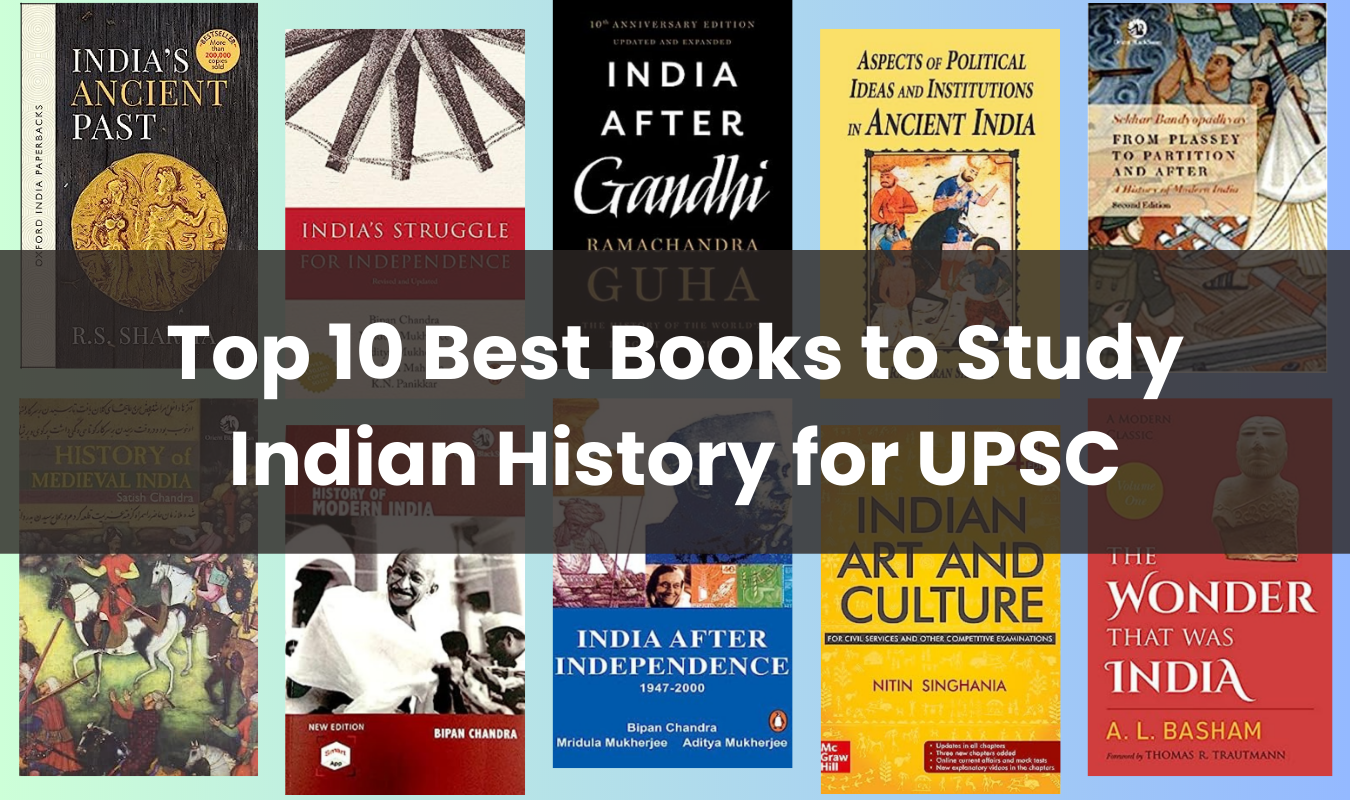



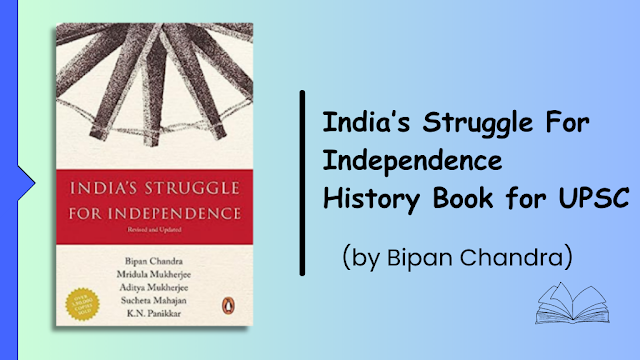
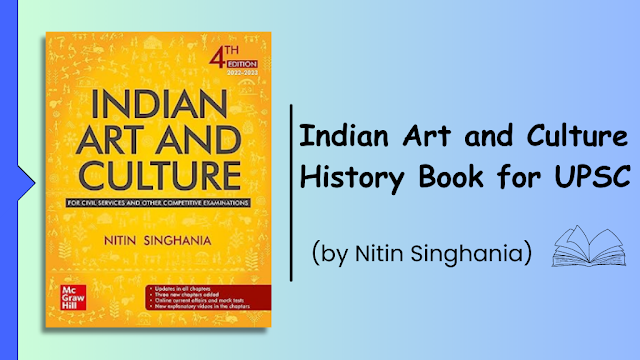
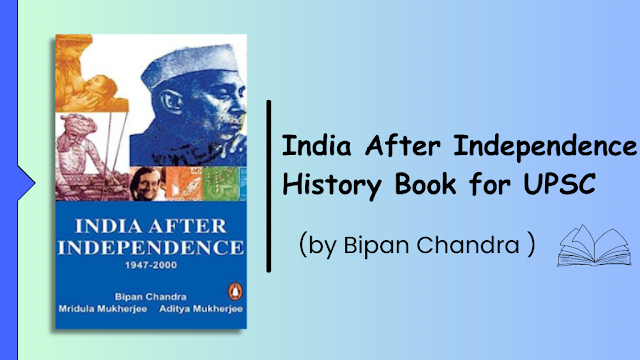


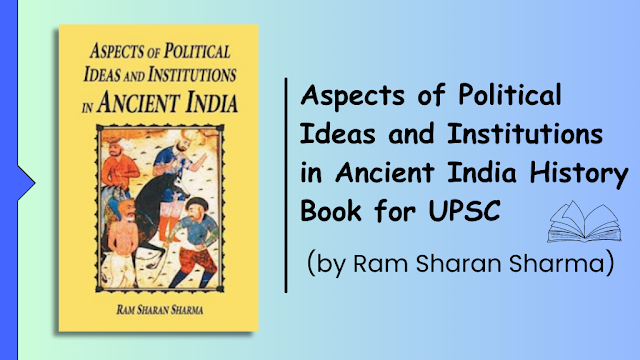


.png)
.png)














.png)
0 Comments